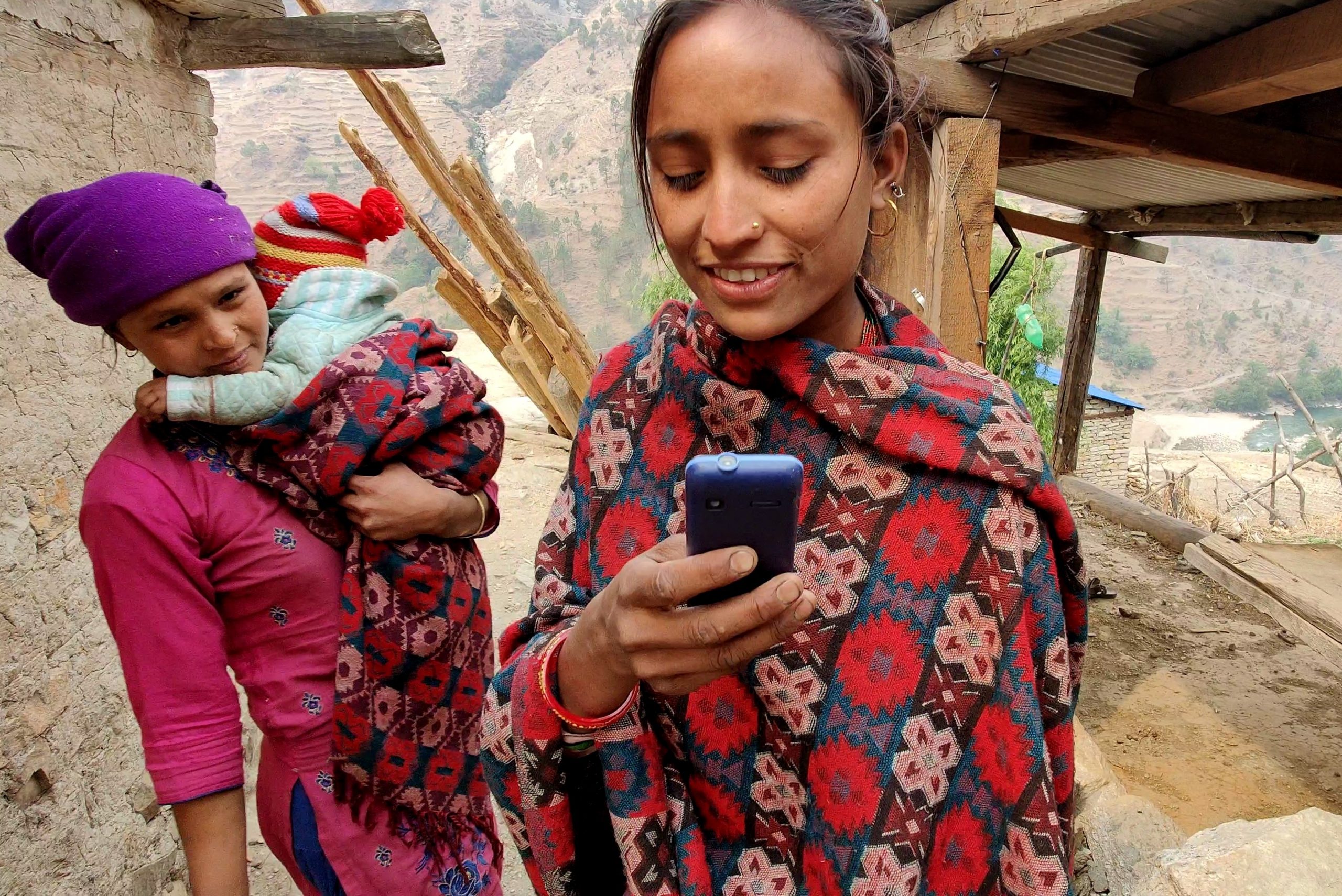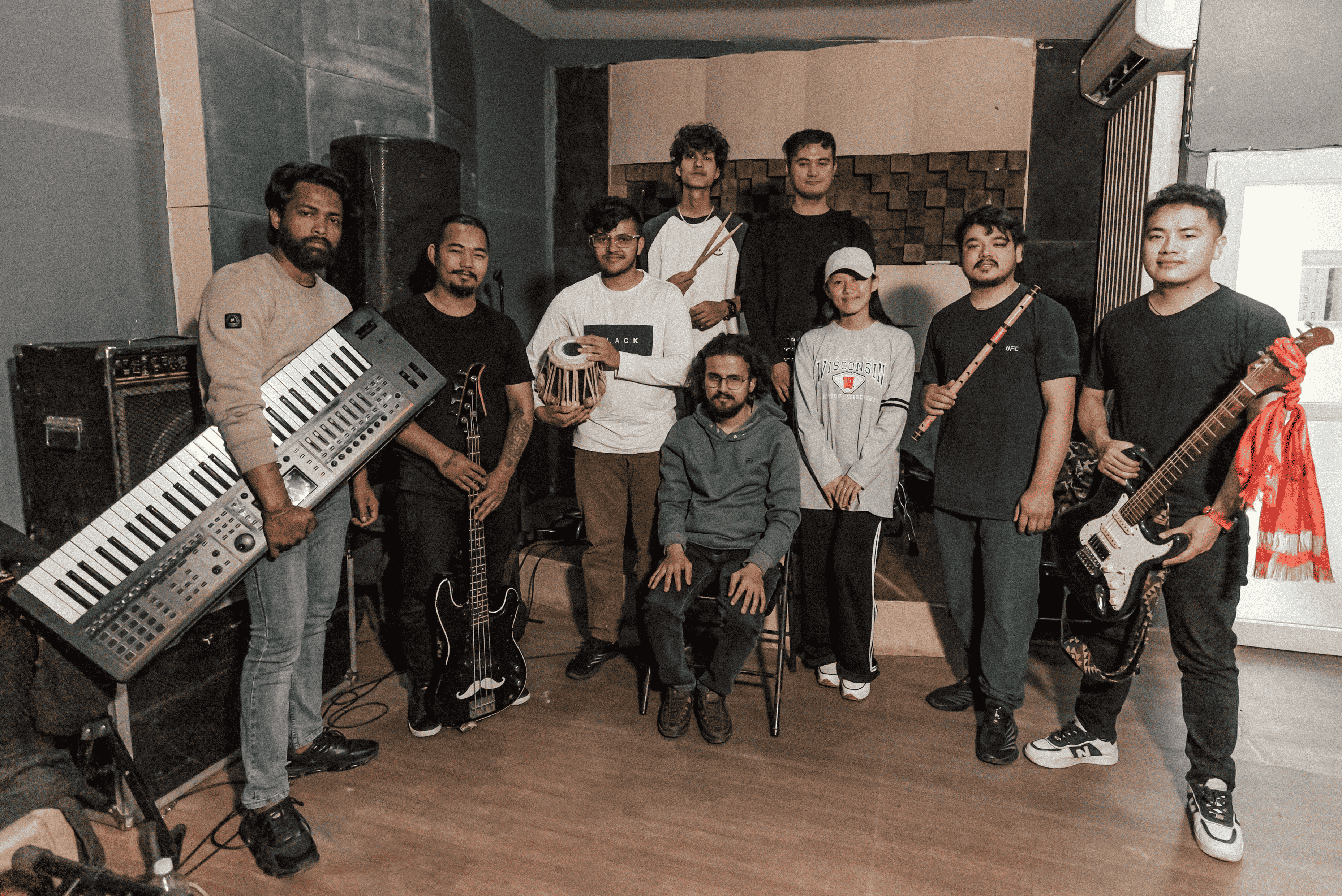Even in today’s modern world, gender-based violence is a recurring issue. While it is still prevalent in urban areas of Nepal like Kathmandu, it is even worse in rural Nepal. The lack of education and awareness, and succumbing to the patriarchy has been cited as the two main reasons for gender-based violence-related cases in rural Nepal. To put an end to this, a lot of effort has been put up by both the government and aid organisations. But, due to multiple constraints, the cases continue to rise.
Despite the constraints, aid organisations have been continuously working at finding new ways to raise awareness about gender-based violence among women living in rural Nepal. One such organisation is Viamo, a global social enterprise focused on changing lives with the help of technology.
Last year, Viamo along with Nepal Telecom started a hotline service that sent out information about the dangers of Covid-19 and what people needed to do to be safe from the virus. The service, which could be accessed by dialling 32100, received great feedback with over 10,000 people, mostly from Province 1, Karnali and Sudurpaschim, calling in every day.
Since then, Viamo has added various other services to the 321 platform, like daily news, information on health, agriculture, weather, child education and disaster management. Now, to mark the 16 Days of Activism against Gender-Based Violence, it is also adding information and small skits related to gender-based violence to educate people of rural Nepal on the issue.
Awareness with accessibility and ease
“As we’ve been getting such good numbers, we want to see if this can be effective. We’ve prepared 16 messages that we will air on the platform and have also prepared a phone-in game through which we will aim to educate women and men on why gender-based violence is bad and how they can stop it,” says Shruti Jha, the product manager of the 321 platform at Viamo Nepal.
What makes the 321 platform practical is anyone who is with Nepal Telecom can access this anytime anywhere. All they have to do is dial 32100 and follow the instructions.
“We wanted to make it as accessible as possible. We designed our interventions knowing who our target audience is and send out the information accordingly,” says Sugyog Raj Chalise, a project manager at Viamo.
Wanting to bring in social behavioural change among people living in rural Nepal, it is also using radios and social mobilisers to make sure the platform reaches as many people as possible. There is also an option to register to the service, through which people will get phone calls giving them information about various issues.
These interventions, according to Jha, are undertaken in a dialogue format. She says her organisation has focused on three key aspects when it comes to gender-based violence: the role of women in the community, her personal life and her family.
“As we want to bring in behavioural change, we want to highlight why gender-based violence is wrong and what a woman can do to stop it,” she says, adding the messages that they give out are done using a human-centric design approach.
Triggering change sensitively
Viamo also uses three aspects when preparing these messages for the 321 platform. The first parameter it looks at is relevance. The second: if it is enjoyable and lastly, if it is actionable.
“We ensure that the message we try to give out has these parameters because if it doesn’t, it won’t be as effective as we want,” says Chalise.
He says each message related to gender-based violence is sent out with gender equality and social inclusion (GESI) in mind. The messages are toned down and include members of the society that are overlooked.
“We don’t want to be insensitive because that will undermine what we are trying to do,” he says.
Aid organisations like US Aid and Mercy Corps are also helping the organisation in the 321 platform. Working together with Viamo, they have been putting up information about the platform in the villages that they are working at.
“We’re closely associated with the Bhakari project. We’ve been using the data that they give us and are doing what we do,” says Chalise.
The organisation says it has been getting good feedback too. Sita (name changed) from Salyan in the Karnali province says she has learnt a lot from the 321 platform which has around 8,000 women calling in daily.
“I happened to access their messages on ways to increase the involvement of women at a family level almost 10 days back, and I realised how women from my family have been deprived of it,” she says. “I never thought how lack of participation is also a form of violence. The message not only explained why this was wrong but also spoke about how we can increase women participation in family decisions.”
That is the kind of response they were looking for as well. Jha says the organisation has been trying to inform women about how prevalent gender-based violence is and what constitutes it. She says they try to give out information about different issues that it cannot give out through radios.
“We also tell about hotlines they can call to report cases related to GBV,” says Jha.
Turning change into fun
Jha also adds Viamo is also working on launching a game on the 321 platform to break social stereotypes. The game, according to Jha, will let the caller choose their own path to a story.
“They’ll have two options and if they chose the right option, we’ll encourage them and justify why choosing the option was the correct thing to do. If they choose the wrong option, the narrator will tell why it was wrong,” says Jha.
She says the organisation also aims to find out what preconceived notions people have. “It’s going to take time, but we hope to create some change via the 321 platform,” says Jha.



















